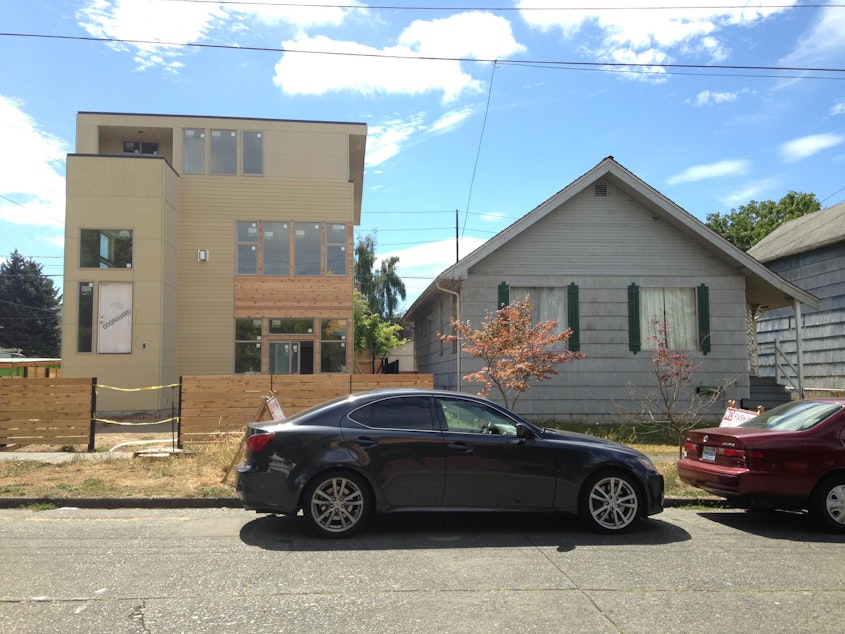This is what you need to earn to afford a two-bedroom in Seattle

Renters in Washington state would need to make $27.78 per hour to afford a modest two-bedroom unit, according to a new report from the National Low Income Housing Coalition.
That’s more than double the state’s current minimum wage of $12 per hour.
The report looks at the gap between wages and housing costs, painting a grim picture for low-income workers across the U.S.
It estimates what workers would need to make to afford the U.S. Department of Housing and Urban Development’s (HUD) fair market rents without spending more than 30 percent of their income on housing (households spending more than 30 percent of their income on housing are considered "rent burdened").
A worker making Washington’s minimum wage would need to clock 75 hours per week, every week of the year, to afford a one-bedroom unit at fair market rent.
That jumps to 93 hours per week if you want an extra room – more than two full-time jobs.
According to the report, the situation is even more dire in Seattle — despite having one of the highest minimum wages in the country.
Sponsored
People making $15 per hour and working full time still can’t afford housing in the area.
The report estimates workers in Seattle would need to make $36.52 per hour to afford a two-bedroom unit without being rent burdened.
“Housing is significantly out of reach, not just for minimum wage workers, but for workers earning much higher rates,” said Rachael Myers, executive director of advocacy group Washington Low Income Housing Alliance.
The report puts the average renter’s wage in Seattle at $25.61 per hour, still not enough to afford a two-bedroom place.
Even for a studio apartment, the report estimates workers in Seattle would need to make $56,640 per year.
Sponsored
That would require someone to work nearly 91 hours a week at $12 per hour (the minimum wage in Seattle for small employers who contribute to medical benefits), or more than 72 hours per week at $15 per hour.
Myers said the average hourly wage for many common positions – receptionists, retail workers, nursing assistants – isn’t enough to cut it in Seattle.
“All of those kinds of folks don’t make anywhere near the wage that they need to earn to be able to afford housing in the Seattle area, and really in most places in the state,” she said.
The result, Myers said, is that many people spend more than 30 percent of their income on housing, leaving less for other expenses like food, medical care, transportation or child care. Or they get creative – doubling up, moving further from their work to somewhere more affordable, or relying on other resources like food banks.
Myers said her group is focused on increasing affordable housing available to people at the lowest income levels.
Sponsored
She also stated that the state and local cities, like Seattle, are doing more. Meyers said legislation created during the last session will give local jurisdictions more resources to build affordable housing.
Her group also advocates each year for the legislature to increase investments in the state housing trust fund, the primary source the state uses to help build new affordable units.But she said the scope of investments needs to be increased significantly to have any impact in the near future.
And this is most definitely not just a local issue.
“In no state, metropolitan area, or county in the U.S., can a worker earning the federal or prevailing state minimum wage afford a modest two-bedroom rental home at fair market rent by working a standard 40-hour work week,” the new report states.
Out of more than 3,000 counties nationwide, minimum-wage full-time workers in only 28 of them can afford a one-bedroom apartment at fair market rent.
Sponsored
Historical and persistent income disparities create an even greater housing affordability challenge for people of color and women.
Among other things, the new report advocates for more investment at the federal level to increase rent assistance and affordable housing stock.




